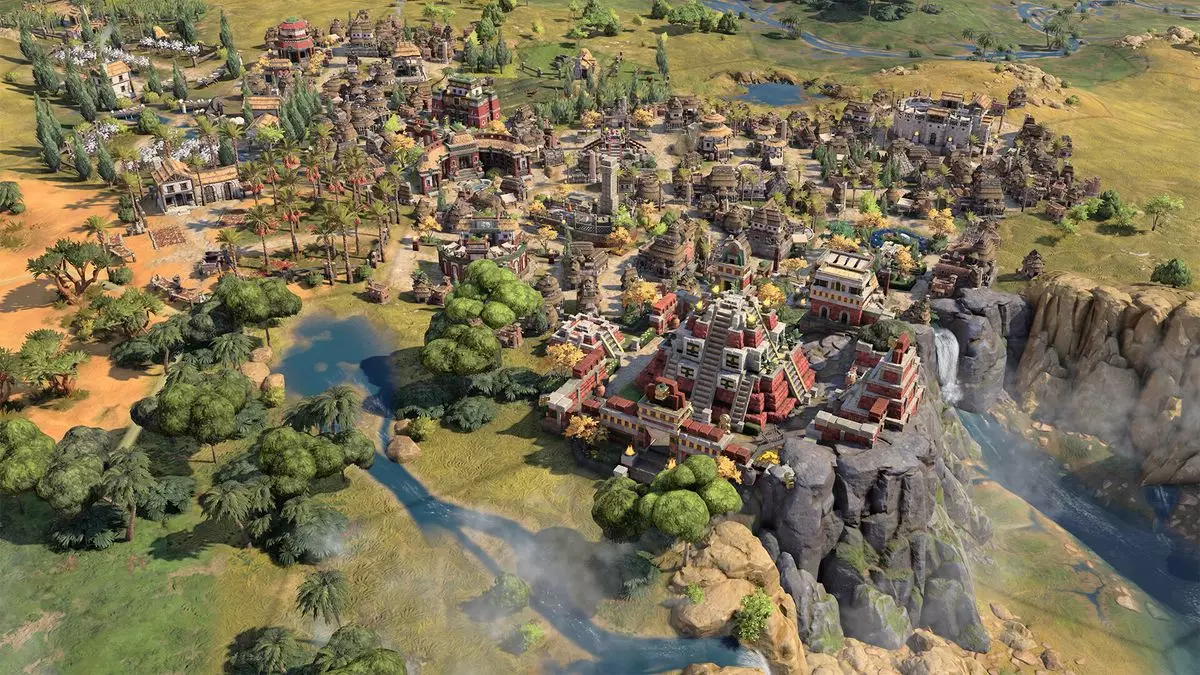The Civilization series has long been a staple of strategy gaming, weaving complex stories about human development through the ages. With the announcement of Civilization 7, the developers are not just revisiting old formulas but are ready to embrace transformative changes that could shift the very foundation of gameplay. At the heart of this transformation is the new Ages system, which segments the game into three distinct phases, effectively redefining how players interact with their civilizations and leaders. This bold move is both thrilling and daunting, as it challenges the traditions that long-time fans have come to love.
The introduction of the Ages system signifies a strategic revolution in how matches unfold. Players will no longer be confined to a single civilization for the entire game duration. Instead, each Age presents fresh opportunities to modify strategies and harness different civilizations, allowing players to adapt dynamically to the ever-evolving circumstances on the map. Executive producer Dennis Shirk describes this innovative approach as “one of the biggest changes” to the franchise, illuminating a path towards a more interactive and responsive gameplay experience.
This segmentation not only breathes new life into the familiar format but also encourages a deeper level of strategic thinking. For instance, during the initial Age, players focus on expanding their territories and navigating local challenges. As they progress to the next Age, they gain access to advanced technologies and capabilities—such as ocean exploration—prompting a reassessment of their strategies and available resources. This element of progression fosters a continual sense of discovery, allowing players to experience key milestones cyclically rather than only during the early stages of gameplay.
One of the standout features of the new Ages system is its emphasis on the customization of leaders. Each leader possesses a unique attribute tree tailored to match their specific playstyle, promoting a more personalized gaming experience. This means that depending on the Age, players can pivot from one civilization to another, capitalizing on different strengths and weaknesses to respond to their opponents or their evolving needs. In doing so, players might discover unique synergies previously unexplored within the franchise, which could lead to groundbreaking strategies.
This concept of mixing and matching civilizations and leaders is poised to enhance not only individual gameplay but also the competitive aspect of matches. With new combinations emerging, players are likely to find themselves engaging in more diverse tactical scenarios. The idea of leaders embodying distinct advantages and weaknesses will require players to remain flexible in their approach, mirroring the unpredictable nature of real-world civilizations throughout history.
As exciting as these changes may be, they also pose a challenge for veteran players of the franchise. Creative director Ed Beach has labeled the new system as “the hardest thing” for longtime fans to assimilate, signaling a departure from established strategies that many have mastered. Players may initially struggle to adapt to this new framework as they jettison comfort zones formed over decades of gameplay.
However, this is not merely a disruption; it’s an invitation for exploration and innovation. The design team has approached this shift “with care and with time and effort,” which leads to optimism about how seamlessly these changes will integrate into the broader gameplay experience. The opportunity for players to reinvent their strategies could cultivate a refreshing breath of life into the series, encouraging not only adaptation but also creative strategical evolution.
As Civilization 7 prepares for its launch on February 6, 2025, anticipation continues to build among the gaming community. The new Ages system promises to offer a distinctive gameplay experience that celebrates both the complexities of civilization-building and the excitement of evolving strategies. By embracing a structure that allows for continuous discovery, Civilization 7 aims to push beyond its storied legacy, inviting players to explore a richer tapestry of history and strategy.
While the transition to the Ages system might be daunting for those steeped in tradition, it also holds the promise of rejuvenation. Civilization 7 could very well define a new chapter in the franchise, blending foundational elements with transformative innovations that ensure the series remains compelling for years to come. The time for players to chart their new paths is approaching, and the gaming world is eager to witness the journey unfold.


Leave a Reply